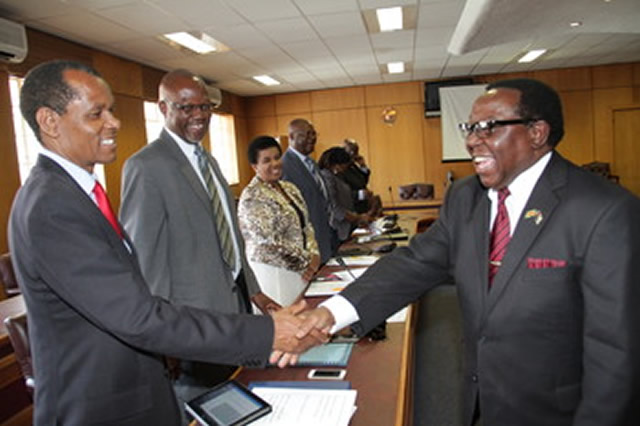Zim to establish climate policy
Elita Chikwati Agriculture Reporter
Zimbabwe is working towards establishing a National Climate Policy aimed at promoting mainstreaming of climate and climate change issues into national development plans.The document will aim to improve the policy framework for the introduction of climate protection measures guided by priorities and principles set under the United Nations Framework Convention on Climate and the Kyoto Protocol.
The Kyoto Protocol to the UNFCC is an international treaty that sets binding obligations on industrialised countries to reduce emissions of green house gases.
Speaking at the first consultative workshop on the development of the policy, Secretary in the Ministry of Environment, Water and Climate Mr Prince Mupazviriho, said the policy would ensure Zimbabwe responded more strategically and in a unified manner to the impact of climate change.
“The importance of climate science in advising and addressing climate change issues cannot be over emphasised and climate change being a cross-cutting issue calls for the need for effective national dialogue, consultations and harmonisation of policies from other sectors,” he said.
Mr Mupazviriho said the country’s preparedness and actions in response to extreme climate and weather events required a well co-ordinated and integrated approach.
“Government views global climate change as a serious issue and continues to meet her obligations under the Climate Change Convention.
“It is, therefore, my expectation to have at the end of the process, a policy that will be based on robust modelling of climate parameters and projections, support the national developmental vision and national programmes such as the Zim-Asset, gender sensitive to the values and interests of vulnerable groups, promote technology transfer, capacity building and information sharing,” he said.
Meteorological Service Zimbabwe principal meteorologist, Mrs Linia Gopo said it was important for Government to be fully aware of a range of climate factors if it was to maximise productive use of natural resources and assure their sustainability.
“Knowledge of climate issues is also necessary to mitigate the consequences of climatic hazards such as droughts and floods,” she said.
Business Council of Sustainable Zimbabwe representative Mr Dingane Sithole said the impact of climate change was evident in sectors such as the agriculture, forestry and tourism among others.
He said policy remained a significant climate change mitigation tool.
“There are challenges to mitigation such as access and deployment of renewable energy, lack of clear green policy by Government and lack of information,” he said.
The workshop was expected to give clear guiding principles, strategic directions and a roadmap for climate policy formulation to enable the responsible ministry to effectively lead and co-ordinate the process.







Comments